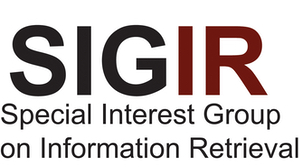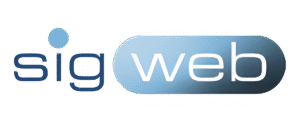Call for Research Papers
Digital libraries are essential guardians of global knowledge and culture, preserving humanity’s collective memory and fueling innovative research, learning, and discovery. In an era of unprecedented data growth and transformative AI, JCDL continues to be the premier international forum for the multidisciplinary community of researchers and practitioners in digital libraries and allied fields. To support broad international participation while fostering live interaction, JCDL 2025 will be held as a fully virtual, synchronous event. Authors of accepted papers will be expected to present their work live during scheduled sessions and submit a pre-recorded video for asynchronous access. We invite original research that advances the state-of-the-art in managing, accessing, analyzing, and curating digital collections. JCDL 2025 welcomes contributions across computer science, information science, library science, social science, and cultural heritage domains. We particularly encourage submissions that leverage cutting-edge approaches, including artificial intelligence, machine learning, natural language processing, large language models, data science, knowledge graphs, generative models, recommendation systems, and information retrieval. Whether building more intelligent search systems, organizing knowledge at scale, or applying foundation models to digital archives, your work should demonstrate innovation and impact.
Important Dates
All deadlines are Anywhere on Earth (AoE) time:
- Full/Short Paper Submission Deadline (EXTENDED):
August 22, 2025September 12, 2025 - Author Notification:
October 10, 2025October 31, 2025 - Camera-Ready Deadline:
November 1, 2025November 14, 2025
Submission Site
JCDL 2025 EasyChair Submission Portal
Topics of Interest
JCDL 2025 topics include, but are not limited to:
- Artificial Intelligence, Data Science, and Analytics for Digital Libraries:
- Machine learning and deep learning methods for digital libraries
- Large language models, generative AI, agent-based systems, and foundation models in information access
- Data mining, data analytics, and visualization of library collections
- Knowledge graphs, semantic web, ontologies, and graph-based knowledge representation
- Natural language processing, information extraction, and semantic search
- Predictive analytics, neural retrieval, and data-driven innovation
- Search, Retrieval, and Recommendation Systems:
- Information retrieval, indexing, and ranking for large-scale digital collections
- Personalized search, user modeling, and recommender systems
- Semantic search, question answering, and conversational interfaces
- Navigational and exploratory search, interactive retrieval, query understanding, and multimodal retrieval (text, images, audio, video)
- Knowledge discovery, entity-centric retrieval, and cross-lingual retrieval
- Human Interaction, Communities, and Collaboration:
- User experience (UX) design, usability, and accessibility in digital library systems
- Collaborative and social information environments, including crowdsourcing and citizen science
- Social networks, social tagging, folksonomies, and community curation of content
- Human-centered design, interactive visualization, and user behavior analysis
- Community building, scholarly communication, and engagement with digital content
- Content, Collections, and Digital Humanities:
- Digitization, transcription, and analysis of cultural heritage and multimedia collections
- Digital humanities methods, computational social science, and arts-based informatics
- Metadata standards, linked data, semantic annotation, and interoperability in digital collections
- Document genres, scholarly content management, and digital exhibits
- Multilingual and multicultural digital libraries; inclusion of diverse voices and resources
- Domain-specific applications of digital libraries
- Infrastructure, Preservation, and Data Management:
- Digital preservation, long-term archiving, and sustainability of digital collections
- Data curation, stewardship, and repository infrastructure
- Linked open data, metadata integration, and semantic interoperability
- Cloud computing, distributed architectures, and scalable library systems
- Open science, open data initiatives, and reproducibility of digital library research
- Policy, Ethics, and Societal Impact:
- Intellectual property, copyright, and licensing issues in digital collections
- Privacy, security, and trust in digital library systems and AI applications
- Ethics of AI, algorithmic fairness, bias, and accountability in information access
- Accessibility, inclusion, and equitable access to knowledge for diverse communities
- Social, cultural, and legal implications of digital preservation and access
Paper Submission Categories and Formats
JCDL 2025 invites high-quality submissions in the following categories:
- Full Research Papers (up to 10 pages, including references): These should present mature, well-developed work with significant contributions to digital library research and practice.
- Short Research Papers (up to 4 pages, including references): These may present early-stage research, novel ideas, smaller studies, or concise contributions that are valuable to the community.
All submissions must follow the IEEE two-column conference template (LaTeX or Word), be written in English, and submitted in PDF format. Incomplete or abstract-only submissions will not be reviewed. References count toward the page limit, and optional appendices must also remain within the limits. Please ensure your submission adheres to the official IEEE submission policies and author guidelines. You can find the full details here: IEEE Submission Policies and Author Guidelines.
Submission Guidelines
- Originality
Submissions must report original work that has not been previously published and is not under concurrent review elsewhere.
- Double-Blind Review and Anonymity Guidelines
JCDL 2025 uses a double-blind peer-review process. Submissions must not include any information that could identify the authors, such as names, institutional affiliations, acknowledgments, or references to prior work written in the first person. Authors should refer to their own prior work in the third person (e.g., “Prior work by Smith et al. (2020)” rather than “In our previous work…”). If authors share supplementary materials (e.g., code, data, models), these must be anonymized to avoid revealing author identities. Authors are encouraged to use anonymous hosting platforms such as anonymous.4open.science.
- Manuscript Content
Submissions should clearly articulate their contributions and situate them within relevant literature. Empirical papers are expected to include appropriate evaluation (e.g., datasets, metrics, or user studies). Theoretical papers should include clear reasoning, formal analysis, or proofs as appropriate. Submissions involving human participants or sensitive data must comply with ethical standards as outlined in the Ethics and Conduct section.
- Reproducibility Guidelines
Reproducibility will be considered as part of the review process. Authors are expected to provide sufficient detail to support the verification of their results. For (1) theoretical studies, this includes clearly stated assumptions, formal claims, pseudocode, and complete proofs where applicable. For (2) empirical studies, authors should share anonymized source code, datasets (when permissible), and a clear description of the experimental setup, including computing environment and parameter configurations. Authors are encouraged to include a brief reproducibility statement describing what materials are provided and how to access them.
Proceedings and Presentation
Submissions will be reviewed by the program committee members, and accepted papers will be included in JCDL 2025 Conference Proceedings, published by IEEE Conference Publishing Services (CPS), sent to IEEE Xplore for possible inclusion, and indexed by Ei Compendex and Scopus. To qualify for inclusion in the proceedings and participate in the program, authors of accepted papers must meet the following requirements:
- Each accepted paper must be covered by a distinct conference registration submitted by the registration deadline. For example, if an author has two accepted papers, two separate registrations are required, even if the author list overlaps.
- Authors must submit a pre-recorded video presentation, which may be made available for asynchronous viewing. Detailed instructions will be provided after acceptance notifications.
- Authors are required to present their work live during their scheduled session. The presentation format (oral or poster) will be assigned by the Program Chairs based on the final program.
Awards
Outstanding contributions will be considered for the Best Paper Awards, which will be announced during the closing session of the conference.
Generative AI Policy
All submissions must comply with the IEEE Guidelines on Use of AI-Generated Content. The use of content generated by artificial intelligence (AI) in an article (including but not limited to text, figures, images, and code) shall be disclosed in the acknowledgments section of any article submitted to an IEEE publication. The AI system used shall be identified, and specific sections of the article that use AI-generated content shall be identified and accompanied by a brief explanation regarding the level at which the AI system was used to generate the content. The use of AI systems for editing and grammar enhancement is common practice and, as such, is generally outside the intent of the above policy. In this case, disclosure as noted above is recommended.
Authorship Policy
JCDL 2025 follows the ACM Authorship Policy. Every person listed as an author must have made a substantial contribution to the research and/or the writing of the paper and must take responsibility for the entire content. The complete list of authors, including order, must be finalized by the submission deadline. No additions, removals, or reordering of authors will be allowed after submission. Corrections to spelling or affiliation may be made with approval from the Program Chairs.
Desk Rejection Policy
Submissions that fail to adhere to anonymity, length, or formatting requirements, or that violate academic integrity standards, such as plagiarism, author misrepresentation, or falsification, may be subject to desk rejection by the chairs. Submissions that violate ethical standards (e.g., failure to include required ethics approval statements for human-subject research) may also be desk-rejected at the discretion of the Program Chairs. All authors are expected to comply with the ACM Policy on Plagiarism, Misrepresentation, and Falsification.
Ethics and Conduct
- Research Ethics: Authors are expected to comply with accepted standards for ethical research and professional integrity, including those outlined in the ACM Code of Ethics and Professional Conduct. Submissions involving human participants or sensitive data must include a statement on ethics approval (e.g., IRB or equivalent), informed consent, and any other relevant safeguards. Authors must also comply with ACM Publications Policies, including the Policy on Research Involving Human Participants and Subjects. Please ensure all authors are familiar with these policies. The Program Chairs reserve the right to reject submissions that do not adequately address ethical considerations.
- Conflict of Interest: All authors, reviewers, and committee members must adhere to the ACM Conflict of Interest Policy. Conflicts of interest must be declared during the submission and review process.
- Harassment Policy: All participants must adhere to the ACM Policy Against Harassment.
Contact and Further Information
For general questions, contact the JCDL 2025 Program Chairs at: jcdl2025@easychair.org.
Program Chairs:
- Sagnik Ray Choudhury, University of North Texas, USA
- Ingo Frommholz, Modul University Vienna, Austria
- Jiangping Chen, University of Illinois Urbana-Champaign, USA



